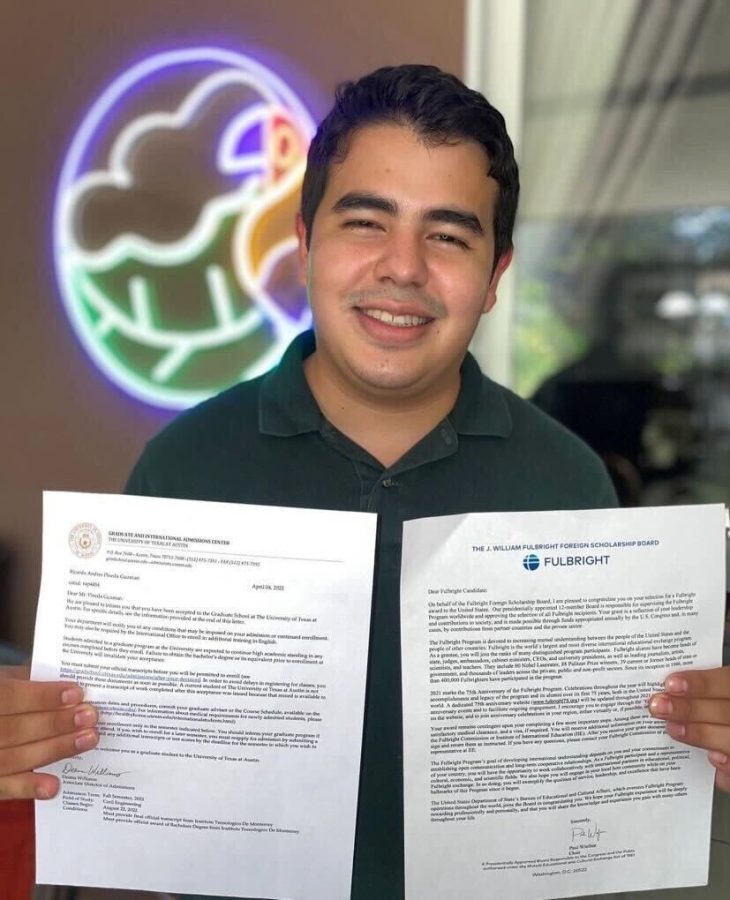Q&A: Fulbright Fellow and incoming graduate student Ricardo Pinedo speaks on how research with UT can help make Honduras more sustainable
August 8, 2022
Ricardo Pinedo strives to improve his home country of Honduras by implementing sustainable practices and helping to decrease human impact on the environment. Pinedo, a Fulbright Fellow taking part in the U.S. cultural exchange program, will attend UT in the fall to complete his master’s in civil engineering. At UT he will work with the RESET Lab, an interdisciplinary research hub that conducts projects across the world with an emphasis on energy transitions in North and Latin America.
Ahead of his arrival at UT, Pinedo sat down with The Daily Texan to discuss his journey in his field, his work in sustainability and what he hopes to learn from UT to help promote sustainability in Honduras.
The Daily Texan: What was your journey finding your specialty within environmentalism and civil engineering?
Ricardo Pinedo: I was exposed (to environmental science) through one of my father’s books, which turned out to be Al Gore’s book about climate change. … I remember being very young and just watching graphs. (Later,) I was selected to become a climate reality leader by the Climate Reality Project, which is coincidentally founded by Al Gore. From there, I started representing my country, mostly escalating my way forward to finding my space as a climate negotiator for my country, specifically in matters relating to decarbonization. Now, I’m currently one of the national decarbonization strategy co-authors and also one of the advisors for the European Union delegation.
DT: What are some misconceptions outsiders seem to have about sustainability in a country like Honduras?
RP: Sustainability looks very different depending on what side of the world you are (living in). We’re not talking about bringing Tesla to Honduras — it’s not something that’s going to be feasible for what most of the people here earn or even by how much energy availability and security there is in the country. It’s not about trying to decarbonize perhaps those very expensive and very wealthy-focused sectors of the economy. Most importantly, when it comes to things related to forests, for example, palm oil is a big (topic). Even then, palm oil is not so visible. When we talk about Nutella or so many other products, such as your cooking oil, that’s the main component for what’s been happening behind the scenes, which is deforestation in Honduras. Trying to decarbonize those products is quite a challenge because you’re really tapping into so many things that perhaps the regular consumer doesn’t normally see. It’s quite a different view of what decarbonization might look like in the (United States) and Texas.
DT: What are the ways you hope to implement what you learned at UT back in sustainability projects in Honduras?
RP: One of the biggest things I’ve identified in these developing countries is a lot of disconnect between academia. We can apply this research to the most vulnerable communities. Over here, we have so many needs that are so cheap to implement, … but we don’t have that focus from academia to actually support and connect with public policy. That bridge between academia and public policy for me is perhaps one of my biggest aspirations.
Q&A: Fulbright Fellow and incoming graduate student Ricardo Pinedo speaks on how research with UT can help make Honduras more sustainable



